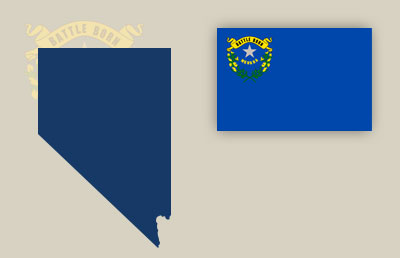Nevada Enacts Temporary Electronic Notary Rule

The Nevada Secretary of State has adopted a temporary rule concerning electronic notarizations. These provisions are effective immediately.
Definitions
The first section of the adopted rule sets forth pertinent definitions such as “electronic notarial certificate,” “electronic notarization solution,” “identity proofing,” and “solution provider.”
Electronic Notary Requirements
Subsequent sections set forth the requirements for registration as an electronic notary, which include: 1) the notary’s commission number; 2) the name of the solution provider to be used by the notary while performing electronic notarizations; 3) a copy of the notary’s electronic seal and electronic signature; and 4) a statement certifying that the notary will comply with the provisions of the temporary rule.
Other requirements for registration as an electronic notary include: 1) a certificate of completion of a mandatory training course; 2) a nonrefundable fee to be paid to the Secretary of State; and 3) a copy of the notary’s electronic signature in a file format.
Audio-Video Communication
Notaries performing electronic notarizations via audio-video communication must be able to: 1) identify the principal using a multi-factor identification process more fully described in NRS Chapter 240; and 2) identify the document as the same document signed by the principal. The temporary rule does not require notaries or principals to participate in notarial acts using audio-video communication.
Solution Provider Requirement
Solution providers are subject to several requirements, including: 1) maintain a Nevada business license; 2) take reasonable steps to ensure that notaries using its solution have complied with Nevada law; 3) receive approval from the Secretary of State prior to use; 4) provide secure access to the solution by password or other secure means; and 5) provide confirmation that the electronic document presented is the same electronic document notarized.
Identity Proofing and Credential Analysis Standards
This section sets out the requirements of credential analysis to be performed by a reputable third-party vendor, including: 1) making a credential pass an authenticity test, in conformity with sound commercial practices; 2) providing the output of the authenticity test to the notary; and 3) enabling the notary to visually compare the information and photograph on the presented credential image for consistency purposes during audio-video communications with a principal.
Prohibited Acts
Notaries are prohibited from performing electronic notarial acts using audio-video communications outside of Nevada. A notary performing electronic notarizations without approval by the Secretary of State is subject to suspension or termination of his or her notary commission. For the full text of the temporary regulation, please refer to https://www.nationalnotary.org/file%20library/nna/reference-library/law-updates/nevada-filed-enotary-regulations.pdf.
Elizabeth Dailey, JD, is a Regulatory Compliance Director with CLA. She is a graduate of the University of New Hampshire and earned her juris doctor at New England Law. She is admitted to the Massachusetts Bar.

Comments are closed.